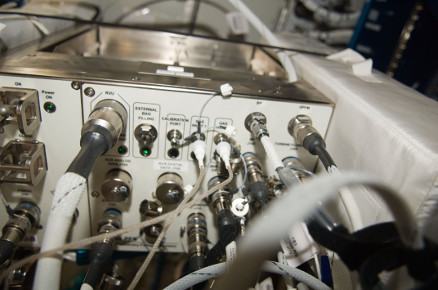BACKGROUND
Portable PFS is an autonomous and multi-user facility supporting a broad range of human physiological research experiments in the areas of respiratory, cardiovascular and metabolic physiology. It is a collaborative development between ESA and NASA in the field of respiratory physiology instrumentation.
The Portable PFS Pulmonary Function System (Portable PFS) is an evolution of the existing previous gas analyzers for space such as PFS, ARMS and RMS-II.
Compared to PFS, the Portable PFS is equipped with a series of features such as touch display, GO-switch, USB ports and a number analogue & digital I/O ports
View Portable PFS specifications
LAUNCH HISTORY
Portable PFS is stowed in the US Destiny laboratory on the International Space Station. The equipment was launched on the Japanese HTV-1 cargo vehicle on September 10th 2009 and checked out in the US Destiny Laboratory in October the same year.
PORTABLE PFS FACTS
- Development: from 2006 to 2009
- Mass is 24.8 kg
- Photoacoustic analyzers for 4 gasses, flowmeters, environmental sensors and interface to external equipment
- Power, data management and Gas distribution modules
- Utilizes NASAs GDS (Gas Delivery System) for gas supply
- 6 models total exist for flight, training, qualification and BDC (Baseline Data collections)


